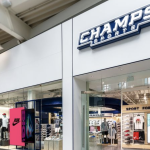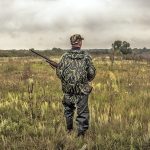It appears that Russell and Huffy were involved in a quiet bidding war for Rawlings this last fall. In an SEC filing on January 17, 2003, K2 Inc., the eventual suitor that won the hand of the venerable sporting goods brand, outlined the process that enabled it to come closer to realizing its plan to broaden its influence in the team sports market.
The filing indicated that, as previously reported, the boards of directors of K2 Inc. and Rawlings Sporting Goods Company, Inc. have approved a merger of the two companies, subject to shareholder approval.
Each outstanding share of Rawlings common stock is expected to be converted into a fraction of a share of K2 common stock based on an exchange ratio equal to 0.950 of a share of K2 common stock for each share of Rawlings common stock.
Under the terms of the deal, Lara Acquisition Sub, Inc., a wholly-owned subsidiary of K2, will merge with and into Rawlings, with Rawlings becoming a wholly-owned subsidiary of K2.
The merger agreement provides for the payment by RAWL of a termination fee of $2,900,000 if the merger is terminated under certain circumstances.
To support the deal, K2 has entered into a non-binding letter of intent with Bank One, NA for a new bank credit facility that will provide for aggregate borrowings by K2 of up to $160 million, increasing the facility to $225 million to accommodate the working capital requirements of Rawlings. The proposed credit facility will be secured by all of the assets of K2 and its domestic subsidiaries, including the assets of Rawlings following the merger.
The proposed bank credit facility will include covenants that will place significant restrictions on K2’s operations, including restrictions on stock repurchases, indebtedness, mergers and acquisitions, sales of assets, investments, loans, liens and encumbrances, transactions with affiliates and capital expenditures.
According to the filing, Rawlings was engaged in numerous discussions and negotiations between November 1997 and December 2002 regarding potential strategic transactions prior to entering into the merger agreement with K2.
The heat was turned up last summer as Russell and Huffy entered the fray, and RAWLs largest shareholder went on a buying spree of the companys stock.
The chronology of events that were outlined commenced with Rawlings discussions with Bull Run Corporation, a sports marketing company based in Atlanta. Bull Run, owner of about 10% of Rawlings common stock in late 1999, held discussions from March 1999 though January 2000 with RAWL to acquire its outstanding shares.
Rawlings discontinued its evaluation of the potential Bull Run acquisition when the suitor failed to present a fully financed plan. Bull Run subsequently sold all of its Rawlings shares in the open market in December 2002.
In July of 2001, Daniel Gilbert, a partner in Camelot Ventures and chairman of Quicken Loans, contacted the CEO of Rawlings, regarding Mr. Gilbert’s interest in a potential investment in RAWL. He felt the company was under-capitalized and proposed infusing cash by buying newly issued shares from the company.
Mr. Gilbert commenced buying shares on the open market. From February 2002 to August 2002, Gilbert increased his stake in the company from 6.4% to 14.6%. Gilbert offered $10-$12 million for RAWL in April, seeking two director slots and the COB position. He made a final offer of $8.50 a share in mid-December 2002.
Discussions with Huffy started in January 2002 as an unsolicited offer by HUF to purchase the outstanding shares of RAWL common stock at a price ranging from $5.75 to $7.25 per share.
Rawlings determined that Huffy’s offer was inadequate, but granted HUF an opportunity to perform due diligence with a view to increasing its offer.
In June 2002, Huffy informed RAWL it would be unable to consider any transaction until Huffy’s acquisition of Gen-X Sports was completed. In October 2002, Huffy informed Rawlings that it would not be able to consider any transaction with Rawlings until the end of HUFs Q4.
Russell entered the picture in July after RAWLs CEO, Stephen OHara, initiated a meeting with RML president Jonathan Letzler. OHara then presented the RAWL business plan to RML CEO Jack Ward in August.
Intrigued by the opportunity, Russell in September submitted a non-binding indication of interest, including an offer to purchase the outstanding shares of RAWL at a price between $7.00 and $8.00 per share.
Rawlings senior management met with RML later in September, seeking to increase the RML offer. RML was looking for increased access to the RAWLs management team to conduct due diligence, but was rebuffed.
Russell Corp. in November decided not to make a formal written offer, seeking to hold off until mid-2003 to assess RAWLs improved operating performance.
Rawlings elected to pursue the K2 $9.00 stock offer over RMLs cash and stock deal worth approximately $7.50.
Gilbert continues to fight the deal , citing K2’s highly leveraged balance sheet, non-existent revenue growth, and thin margins.
Rawlings saw a 10% sales drop and reported a loss in its recently reported fiscal Q1.













